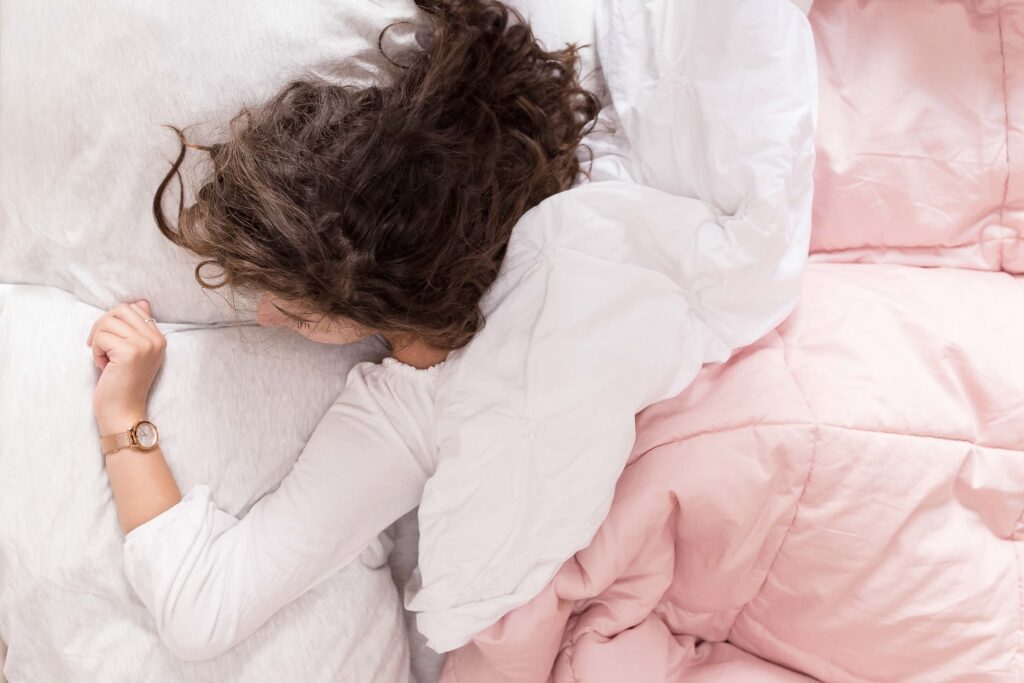
Experiencing a good night’s sleep is crucial for your overall health and well-being, but for many, it still is something that is really hard to achieve … life! We delve how to sleep better with herbal medicine – time to catch those ZZzzzs.
Herbal medicine has been used for centuries as a natural way to address sleeping problems, harnessing the power of nature to calm the mind and promote restful sleep.
With an increasing number of people turning to herbal remedies, it’s important to understand how certain herbs can help you achieve a more peaceful slumber.
When considering herbal medicine for sleep improvement, it’s vital to be well-informed about the safety, efficacy, and potential side effects of various herbs.
While some herbs have a long history of traditional use and are generally considered safe, others may interact with medications or have contraindications. Furthermore, sleep is a complex process influenced by numerous factors, including your lifestyle choices and environment. Combining herbal remedies with positive sleep practices might enhance the benefits you experience.
Key Takeaways
- Herbal remedies can naturally address sleep problems, supporting overall health.
- Knowledge about herb safety and potential interactions is important.
- Combining herbs with healthy sleep habits may enhance sleep quality.
What are we covering today? ….
- Understanding Sleep and Its Importance
- The Role of Herbal Medicine in Sleep Improvement
- Safety and Side Effects of Herbal Sleep Remedies
- Lifestyle and Environmental Factors Affecting Sleep
- Complementary Practices for Better Sleep
- Frequently Asked Questions
Understanding Sleep and Its Importance
You know that good sleep is vital for your health, but do you understand why? Learning about the science of sleep can open your eyes to the effects of poor sleep quality and guide you to solutions like herbal medicine to support a restful night.
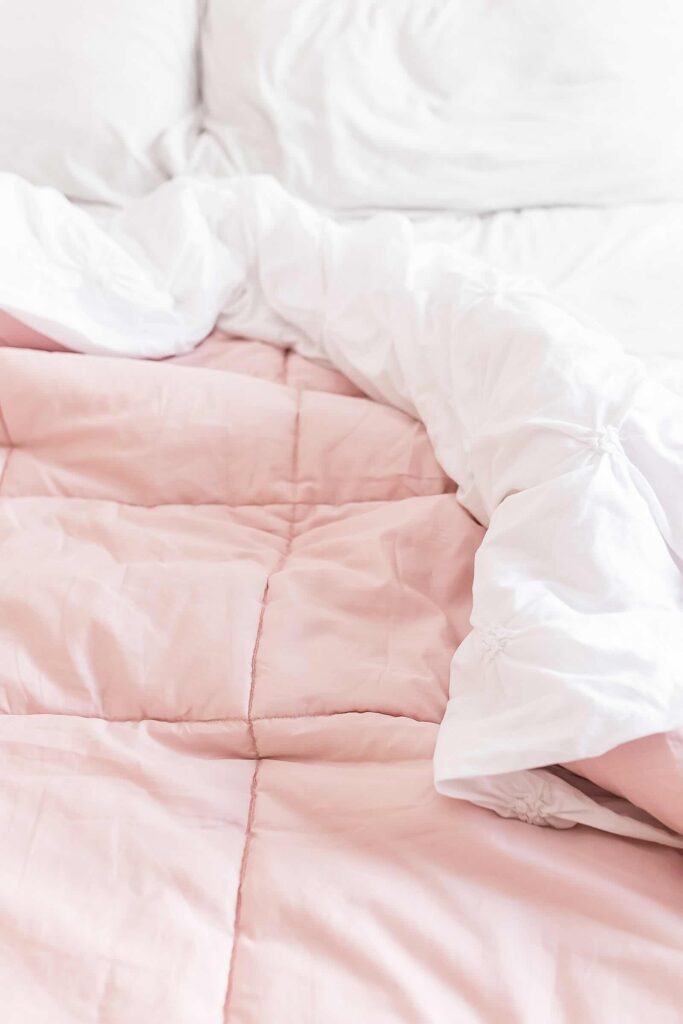
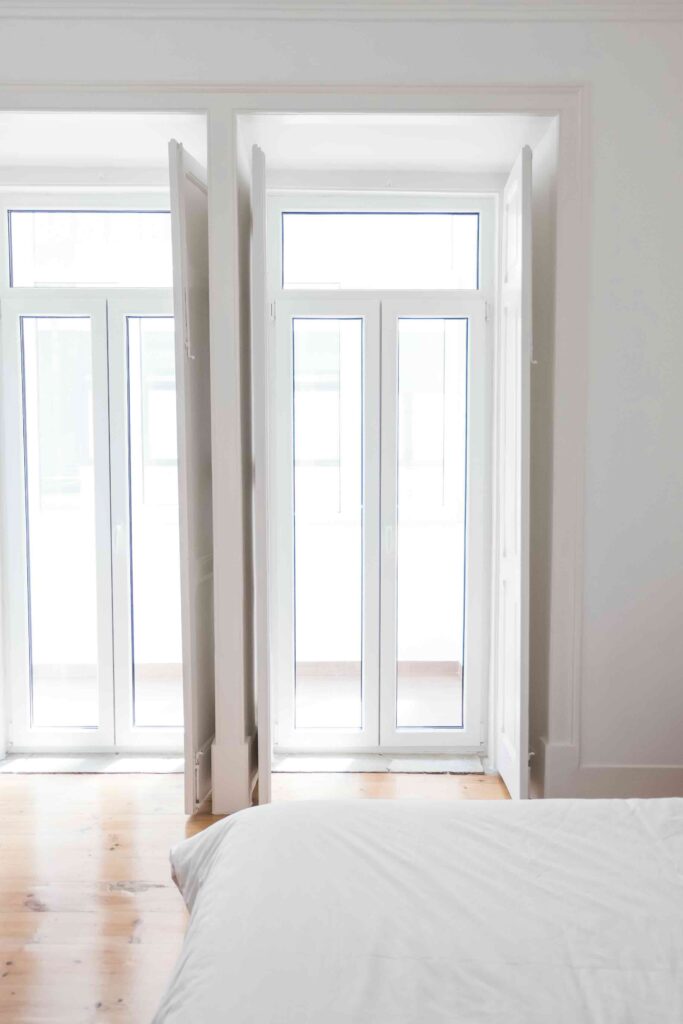
The Science of Sleep
Sleep is a biological process, crucial for restoring energy, preserving mental functions, and maintaining physical health.
Your circadian rhythm, is like an internal clock that regulates your sleep-wake cycle over a 24-hour period. This rhythm affects your sleep quality and overall well-being.
During sleep, your body goes through several sleep stages including REM (rapid eye movement) and non-REM sleep, each playing a unique role in restorative functions.
- REM Sleep: Vital for memory consolidation and mood regulation.
- Non-REM Sleep: Helps with physical recovery and growth hormone secretion.
For optimal health, adults typically need 7-9 hours of sleep per night.
What does poor sleep have? Effects of Poor Sleep Quality
Insufficient sleep can lead to a host of health issues.
Sleep disorders such as insomnia, characterised by trouble falling asleep (sleep latency), staying asleep, or achieving restful sleep, can greatly impact your life.
Consistently poor sleep quality is linked to an increased risk of:
- Obesity: Lack of sleep can affect metabolism and appetite regulation.
- Heart Disease: Sleep affects blood pressure and cholesterol levels.
- Chronic conditions due to the weakening of the immune system.
To maintain your health, it is important to prioritise good sleep quality and address any sleep issues you may experience. Herbal remedies can be a natural option to support better sleep quality. We discuss a few below.
The Role of Herbal Medicine in Sleep Improvement
Herbal medicine might be able to play an important role in enhancing sleep quality by leveraging natural ingredients. Various herbs have been identified for their potential to aid in relaxation and improving sleep patterns.
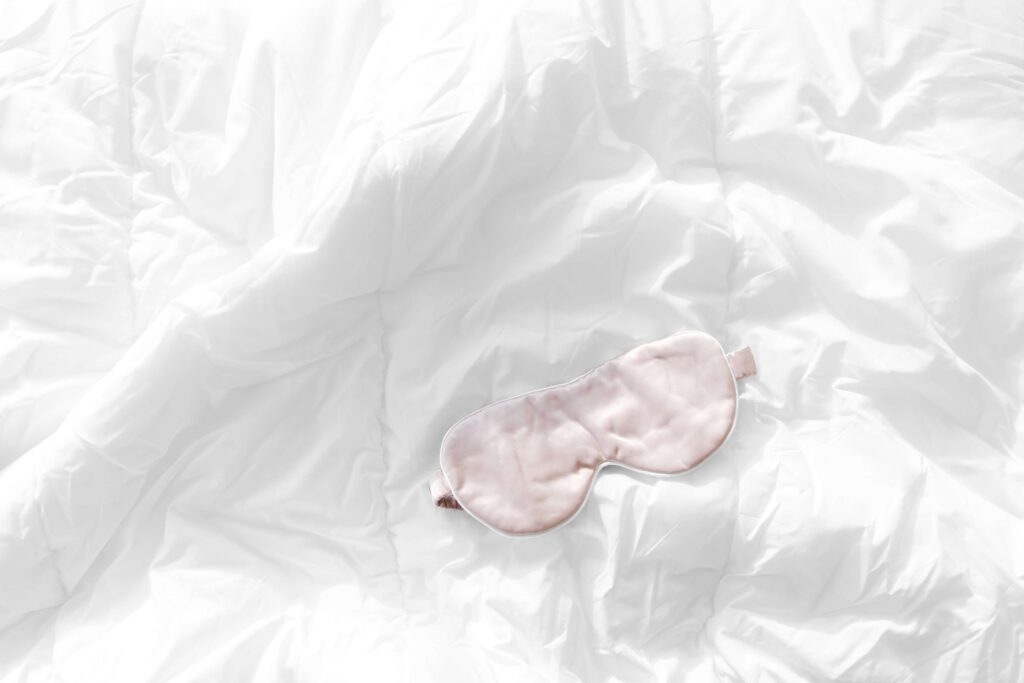
Popular Herbs To Sleep Better with Herbal Medicine
If you’re interested in natural sleep aids, several herbs might be beneficial:
- Valerian Root: Often used to reduce the time it takes to fall asleep and promote a deeper rest.
- Lavender: Known for its calming scent, may help to increase sleep quality; using lavender essential oil can be especially helpful.
- Chamomile Tea: Regularly consumed before bedtime, it’s praised for its mild sedative properties.
- Passionflower: Thought to boost levels of GABA, a brain chemical that promotes relaxation.
- Hops: Commonly combined with valerian root, hops has been associated with improved sleep patterns.
- Tart Cherry Juice: Contains natural melatonin and may help regulate sleep cycles.
- Magnesium: Found in many herbs, can assist with relaxation and has been linked to better sleep.
Mechanisms of Action
Here’s how some of these herbs and natural substances may affect your sleep:
- Melatonin: This hormone regulates sleep-wake cycles, and tart cherry juice is a natural source.
- GABA: An inhibitory neurotransmitter that calms nervous activity. Hops and passionflower may increase its production.
- Serotonin and Tryptophan: This neurotransmitter, derived from the amino acid tryptophan, is crucial for mood and sleep regulation. Various herbs may influence its levels.
- Sedative Compounds: Several herbal extracts possess sedative qualities, helping to relax muscles and the mind before bedtime.
Preparing Herbal Sleep Aids
Choosing the right preparation method is key to maximizing the effectiveness of herbal sleep aids:
- Teas and Infusions: Steeping herbs like chamomile or valerian in hot water is a simple method of preparation.
RELATED: The So-Called Healing Power Of Herbal Tea – An Introduction
- Essential Oils: Oils such as lavender can be inhaled or applied topically after dilution to help induce calmness.
- Supplements and Extracts: Available in capsule or liquid form, these can provide a concentrated dose of herbal remedies.
- Dietary Integration: Incorporating foods rich in tryptophan, magnesium, and melatonin, like tart cherry juice, can complement herbal sleep support.
Safety and Side Effects of Herbal Sleep Remedies
When exploring herbal remedies to improve sleep, it’s crucial to consider their safety and potential side effects. Some herbs can interact with medications or be unsuitable for specific populations.
Potential Interactions With Medications
Herbal supplements might seem harmless, but they can have strong interactions with prescription drugs. For example:
- St. John’s Wort: This herb can reduce the effectiveness of birth control pills and some heart medications.
- Valerian Root: While it can help with sleep, this herb may increase the sedative effect of other sleep aids or anxiety medications.
It’s vital to consult with a healthcare provider before mixing herbal treatments with other medications.
Considerations for Specific Populations
Herbal remedies can have different effects on diverse groups, and certain precautions should be taken:
- Children and Older Adults: These populations can be more sensitive to the effects of herbs. Side effects like dizziness and drowsiness can be more pronounced, increasing the risk of falls.
- Pregnant or Breastfeeding: Many herbal supplements are not recommended. For instance, herbs like valerian root and kava have not been proven safe during pregnancy and may even harm the fetus or nursing infant.
- People with High Blood Pressure: Some herbal remedies can interact with medications for high blood pressure or may not be recommended due to their stimulating properties.
Always check with a healthcare provider for advice tailored to your situation to ensure the use of herbal sleep aids is safe for you.
Lifestyle and Environmental Factors Affecting Sleep
To harness the power of herbal medicine for better sleep, it’s essential to understand how your daily habits and the environment you sleep in can significantly influence your rest. These factors range from the behaviors you engage in before bed to the physical setup of your sleeping area.
Improving Sleep Hygiene
Sleep hygiene refers to the various practices that are conducive to sleeping well on a regular basis. Critical aspects of good sleep hygiene include:
- Consistent Sleep Schedule: Maintain the same bedtime and wake-up time, even on weekends. This regulates your body’s clock and helps you fall asleep and stay asleep for the night.
- Optimal Sleep Environment: Make sure your bedroom is cool, dark, and quiet. Light exposure can affect your circadian rhythms, so consider using blackout curtains or a sleep mask.
- Pre-Sleep Routine: Engage in calming activities before bed, such as reading or taking a warm bath. This can help signal to your body that it’s time to wind down.
- Mind Your Diet: Avoid heavy or large meals within a couple of hours of bedtime. Your digestion process can interfere with sleep, causing discomfort or restlessness.
Limiting exercise to at least a few hours before bedtime can also help as vigorous activity can lead to increased alertness. For those dealing with jet lag or shift work, adapting these habits to your new schedule as much as possible can mitigate some sleep disturbances.
Stress Management and Relaxation Techniques
Managing stress and anxiety is vital for improving sleep quality. High stress levels can lead to a racing mind, physical tension, and in the long term, contribute to sleep disorders like insomnia. Here are several strategies to help you relax both your mind and body:
- Mindfulness and Breathing: Practice mindfulness meditation or deep breathing exercises to enhance your relaxation response.
- Regular Exercise: Physical activity can boost your mood and reduce feelings of anxiety and depression. However, it’s best to complete your workout a few hours before going to bed, so it doesn’t interfere with your sleep.
- Cognitive Behavioral Techniques: Learn cognitive strategies to challenge and neutralize sleep-disruptive thoughts.
- Natural Remedies: Some herbal teas such as chamomile, valerian root, or lavender have been associated with promoting sleep and can be used as part of your relaxation techniques.
Remember, while natural remedies and changes in lifestyle can significantly improve your sleep quality, persistent sleep disturbances such as sleep apnea or chronic headaches might require medical attention.
Always consider consulting with a healthcare provider for conditions like these, which may need more than lifestyle adjustments to treat effectively.
Complementary Practices for Better Sleep
Exploring natural remedies like aromatherapy and herbal supplements can be a gentle way to enhance your sleep quality. These methods can complement your routine to help you achieve a more restful night.
Aromatherapy and Essential Oils
Lavender oil is widely recognized for its ability to promote relaxation and improve sleep. By adding a few drops to a rag or diffuser, you may find that the calming fragrance helps to soothe your mind before bedtime. You could also consider a combination of oils; for example, passiflora incarnata is an ingredient in some essential oil blends that harnesses the power of calming flavonoids and may help reduce hot flashes that can disturb sleep.
Diet and Herbal Supplements
Your diet can strongly influence your sleep, particularly when it incorporates herbal supplements known for inducing calm and drowsiness. Consider a warm cup of tea made from chamomile or valerian root in the evening, which contains natural ingredients to aid sleep. Another excellent addition to your diet could be passionflower tea, containing natural sleep-promoting compounds. Glycine, a simple amino acid found in some foods and supplements, may also improve sleep quality. If you’re exploring more contemporary remedies, cannabidiol (CBD) from cannabis can be considered but ensure to check legalities and consult with a professional before use. It’s shown positive results for sleep, particularly in alleviating anxiety that can interfere with restorative sleep.
Frequently Asked Questions
When exploring ways to improve your sleep through herbal remedies, you may have many questions. Here are answers to some common queries about using herbs for better sleep quality.
Which herbs are known to improve the quality of sleep?
Herbs like Valerian Root and Chamomile are widely acknowledged for their sleep-inducing properties. They are believed to enhance the quality of sleep by promoting relaxation and reducing the time it takes to fall asleep.
What are the best natural remedies for achieving deep sleep?
Melatonin-producing herbs such as Tart Cherry and Lavender are famed for encouraging a deeper, more restorative sleep. These remedies work by aligning your circadian rhythms and reducing nighttime awakenings.
How can I use herbal medicine to address sleep anxiety?
Herbs like Ashwagandha and Passiflora (Passionflower) are known for their anxiolytic effects. Incorporating these into your evening routine can help ease sleep anxiety, leading to more peaceful slumber.
What are the most effective home remedies for falling asleep quickly?
Combining soothing practices with herbs like Lemon Balm or Magnolia Bark is an efficient strategy for falling asleep quickly. These herbs are reputed to calm the mind and prepare the body for sleep.
Can you suggest any herbs that are effective for instant sleep?
While no herb can guarantee instant sleep, fast-acting ones like California Poppy may expedite the onset of sleep when used correctly.
What are some of the strongest natural aids for a restful night’s sleep?
Strong natural sleep aids include Magnesium-rich supplements such as Epsom salt baths or drinking Chamomile tea before bed to harness its soothing effect on the nerves and muscles.

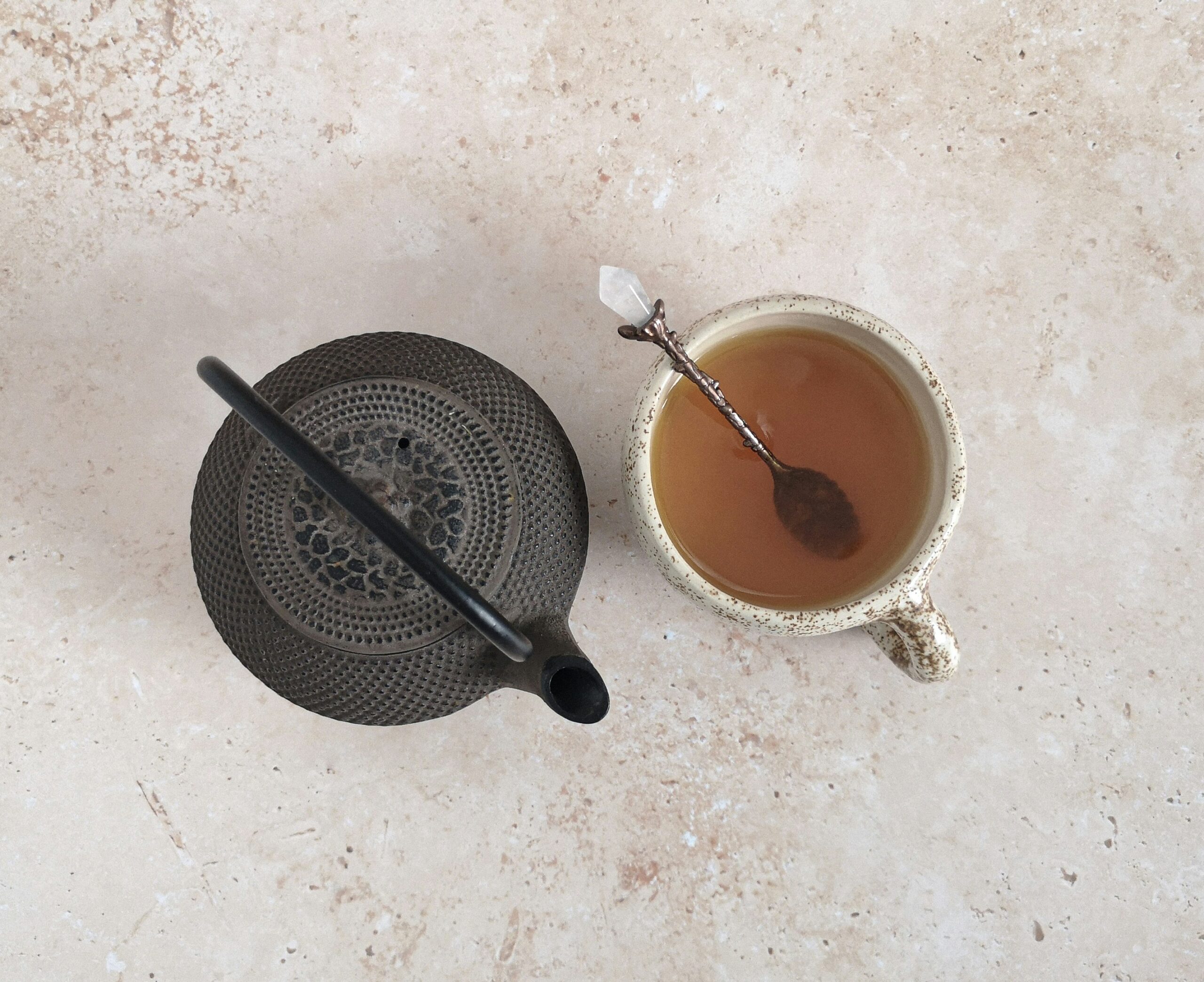

Comments +